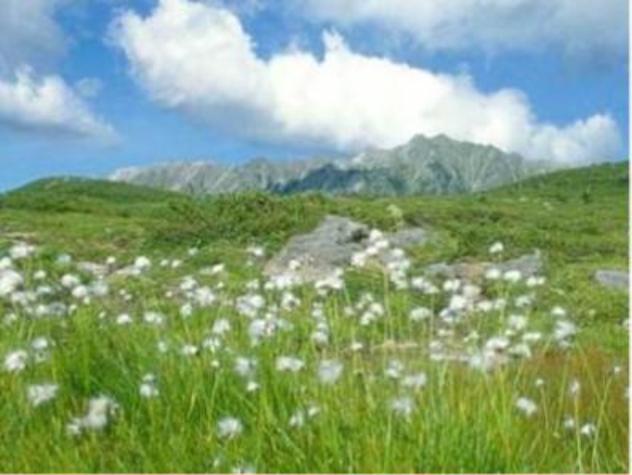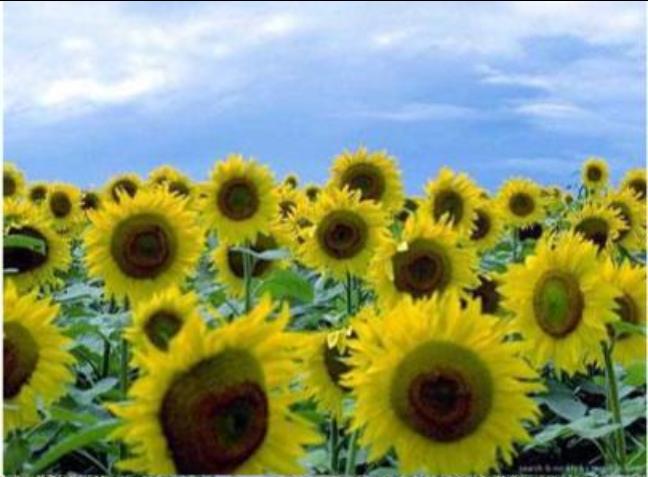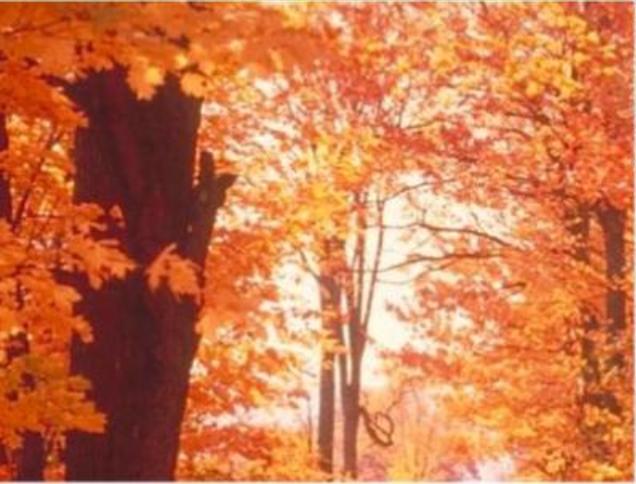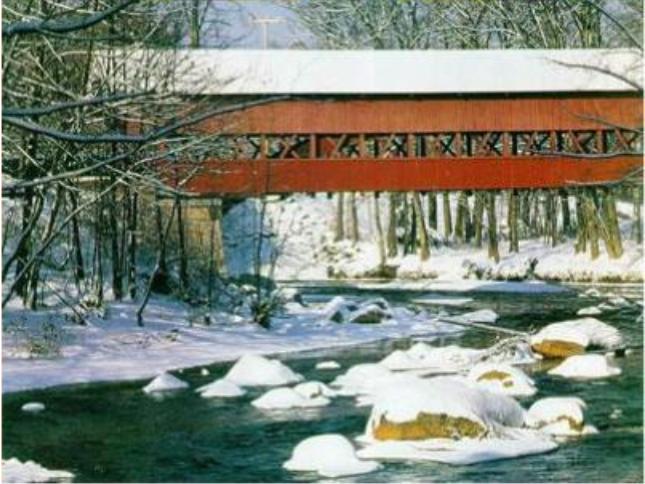|
Seven entries are selected from Mr. Walton’s diary. They tell us
about the four seasons in England and what village people probably used
to do during these seasons, some 30 or 40 years ago

March 17: It rained heavily all morning.
The rain stopped about two o’clock and I went out for a walk. There
was a cold wind blowing, so I put on my heaviest and warmest coat. As
I was walking along the High Street the
wind blew my hat off. I ran after it. The wind carried it into the road
and I ran out the
wind blew my hat off. I ran after it. The wind carried it into the road
and I ran out to
get it. I was almost knocked down by a car. I have just listened to
the nine o’clock news. It will freeze hard in most parts of the country,
they say. to
get it. I was almost knocked down by a car. I have just listened to
the nine o’clock news. It will freeze hard in most parts of the country,
they say.
April 20: We’re having spring weather
now. The sun shone for several hours during the early part of the day.
Now the sky is cloudy and it looks like rain. The rain will help things
to grow. The gardens are full of spring flowers and all the people in
the village are busy sowing seeds. The man next door has been busy cutting
the grass in his garden. I shall have to start cutting the grass in
my garden soon. It’s hard work, but it has to be done.

June 14: I think June is one of the best
months in the year. The temperature was almost eighty this
afternoon. The children enjoy the warm weather. I saw seven or eight
of them in the river after school. Most of them were good swimmers.
One small girl was learning. Her elder sister was teaching her. I used
to swim in this river when I was a boy. Now I find the water too cold
even on a day like this. I can’t remember when I last went swimming.
Probably it was during that enjoyable holiday we had ten years ago on
one of the Greek islands. this
afternoon. The children enjoy the warm weather. I saw seven or eight
of them in the river after school. Most of them were good swimmers.
One small girl was learning. Her elder sister was teaching her. I used
to swim in this river when I was a boy. Now I find the water too cold
even on a day like this. I can’t remember when I last went swimming.
Probably it was during that enjoyable holiday we had ten years ago on
one of the Greek islands.
August 5: This is my wife’s birthday.
She’s fifty-seven. We asked a few old friends in to dinner: the
doctor, the clergyman, the headmaster of the village school, and their
wives. Like most elderly people, I suppose, we spent most of the evening
talking about old times. This was a quiet little village thirty years
ago. Now, every Sunday hundreds of cars and coaches pass through the
High Street at what I think is a very dangerous speed. the
doctor, the clergyman, the headmaster of the village school, and their
wives. Like most elderly people, I suppose, we spent most of the evening
talking about old times. This was a quiet little village thirty years
ago. Now, every Sunday hundreds of cars and coaches pass through the
High Street at what I think is a very dangerous speed. They make the village almost as noisy as the streets of a large town.
When I was a boy I used to enjoy riding on the backs of the big farm
horses. Today there are very few horses working on the farms. The farm
workers today drive tractors, not horses, and a man is not much use
They make the village almost as noisy as the streets of a large town.
When I was a boy I used to enjoy riding on the backs of the big farm
horses. Today there are very few horses working on the farms. The farm
workers today drive tractors, not horses, and a man is not much use
 on
the farm unless he knows all about machines. When I was a boy we had
no electricity in the village. Now every house in the village has a
radio set and a television set. Is it a good thing for children to sit
in front of a television set all evening? It’s probably bad for their
eyes. They ought to be outdoors walking or playing. When my young friends
ask me why I haven’t bought a television set, I tell them there are
thousands of good books I still want to read. I can’t find time for
both reading and television. on
the farm unless he knows all about machines. When I was a boy we had
no electricity in the village. Now every house in the village has a
radio set and a television set. Is it a good thing for children to sit
in front of a television set all evening? It’s probably bad for their
eyes. They ought to be outdoors walking or playing. When my young friends
ask me why I haven’t bought a television set, I tell them there are
thousands of good books I still want to read. I can’t find time for
both reading and television.
October 11: It’s beginning to get quite
cold. We’re glad to have fires and have been burning wood for the last
few weeks. Those old apple trees that were cut down last winter will
give us wood for the fires most of this winter. Our neighbours have
electric fires. They
don’t like fires that burn wood or coal: too much smoke and dirt, they
say. I like to see a wood fire in the living-room and I like an electric
fire in the bedroom. They
don’t like fires that burn wood or coal: too much smoke and dirt, they
say. I like to see a wood fire in the living-room and I like an electric
fire in the bedroom.

December 18: Only a week to Christmas
now. We’re looking forward to having the children with us for
the holidays, and the three grandchildren. We ought to go to town and
buy presents for them. London will be full of people, I suppose, and
there will be so many things in the shops that it will be difficult
to know what to buy. If we have an early breakfast tomorrow we can catch
the half-past-eight train and be in London by ten. We can do our shopping
before lunch and go to a theatre in the afternoon. I don’t think we’ve
been to a theatre for three or four years. for
the holidays, and the three grandchildren. We ought to go to town and
buy presents for them. London will be full of people, I suppose, and
there will be so many things in the shops that it will be difficult
to know what to buy. If we have an early breakfast tomorrow we can catch
the half-past-eight train and be in London by ten. We can do our shopping
before lunch and go to a theatre in the afternoon. I don’t think we’ve
been to a theatre for three or four years.
January 5: It has been snowing for three
days and nights now. In places the snow is already three feet deep.
The postman was an hour late this morning. The trains are all late,
and there are very few cars and vans on the road. If it freezes, the
roads will be very dangerous. There’s nothing worse than frozen snow.
The birds don’t like this sort of weather. They can’t find food. We’ve
put out a lot of bread for them.

The worst winter I remember was the winter
we came to live here. The snow was so deep that for several days we
were cut off from the rest of the country.  We
had no letters and no newspapers. I hope it isn’t going to be as bad
again We
had no letters and no newspapers. I hope it isn’t going to be as bad
again  this
January! this
January!
From Oxford Progressive English Course,
Oxford University Press, 1969.
Approximately 860 words.
--------------------------------------------------------------------------------
[1] The High Street:the main treet of the village
[2] I ran out :I ran from the sidewalk into the centre of the road.
[3] Eighty:800Fahrenheit
[4] We asked a few old friends in to dinner:We asked a few old friends
to come to our house for dinner.
[5] at what I think is a very dangerous speed:at a speed that I think
is very dangerous
[6] a man is not much use:a man is almost useless
[7] electric fires:electric heaters
[8] We are looking forward to having the children with us :We are expecting
the children to stay with us for the holidays.
[9] We were cut off from the rest of the country : we lost touch with
the other parts of the country.
[10] To be bad again:to be as bad as that again.
|